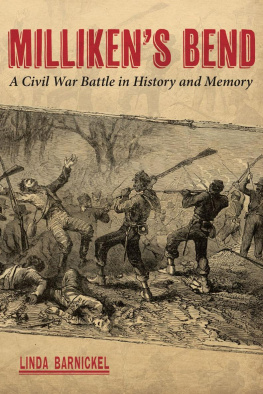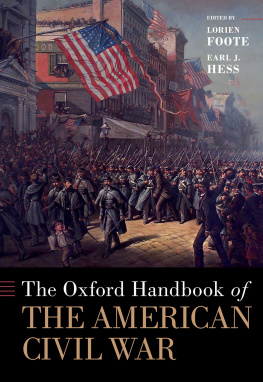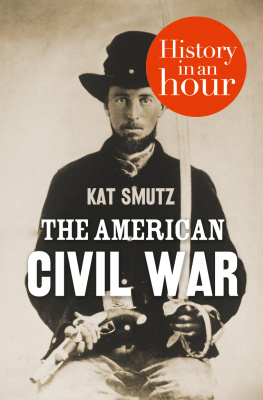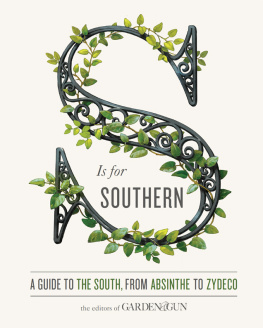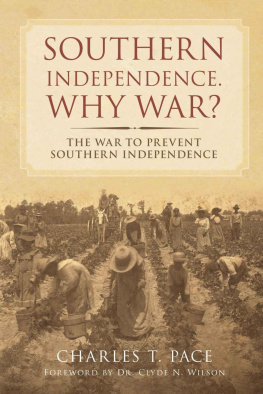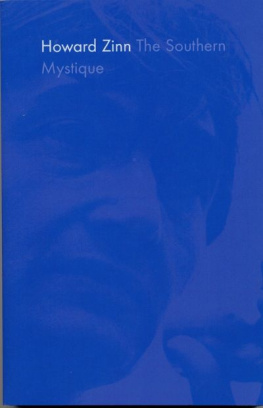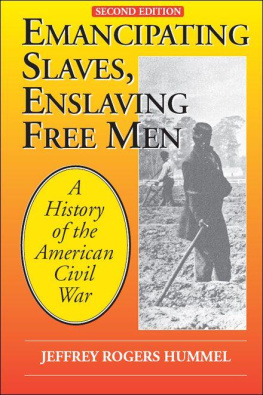THE SOUTH WAS RIGHT!
Free man of color, Henry Brown, from Darlington, South Carolina, sounds the beat for the Confederate army. Like many blacks, Brown willingly served the South during the War for Southern Independence. (Illustration courtesy of Jim Whittington, Shreveport, Louisiana)
THE
SOUTH
WAS
RIGHT!
James Ronald Kennedy
Walter Donald Kennedy
PELICAN PUBLISHING COMPANY
GRETNA 2008
Copyright 1991, 1994
By James Ronald Kennedy and Walter Donald Kennedy
All rights reserved
Published by Land and Land, 1991
Extensively revised and published by arrangement with the authors by Pelican Publishing Company, Inc., 1994
First edition, 1991
Second edition
First printing, March 1994
Second printing, July 1994
Third printing, November 1994
Fourth printing, July 1995
Fifth printing, October 1996
Sixth printing, December 1997
Seventh printing, August 1998
Eighth printing, November 1999
Ninth printing, October 2000
Tenth printing, February 2002
Eleventh printing, May 2003
Twelfth printing, November 2004
Thirteenth printing, May 2006
Fourteenth printing, September 2008
The word Pelicanand the depiction of a pelican are trademarks of Pelican Publishing Company, Inc., and are registered in the U.S. Patent and Trademark Office.
Library of Congress Cataloging-in-Publication DataKennedy, James Ronald
The South was right! / James Ronald Kennedy, Walter Donald Kennedy.
p. cm.
Includes bibliographical references (p.) and index.
ISBN 978-1-56554-024-8 (Hardcover); 9781455612161 (eBook)
1. United StatesHistoryCivil War, 1861-1865Causes. 2. United StatesPolitics and governmentCivil War, 1861-1865. 3. Secession. 4. Confederate States of AmericaHistory.
I. Kennedy, Walter, Donald. II. Title
E459.K46 1994
973.711dc20
93-30640
CIP
Printed in the United States of America
Published by Pelican Publishing Company, Inc.
1000 Burmaster Street, Gretna, Louisiana 70053
Contents
No other war or event has captivated the imagination of the American public as the events known as the American Civil War. It is difficult to understand how an event that happened over 130 years ago can still hold such sway over a people. All types of hobbies, including reenacting the actual battles of that war, have grown up around that conflict. Yet when we consider the scope of that war, the numbers killed, the amount of destruction of public and private property, and the fundamental change that the war had on the political, economic, and social condition of America, it is then that we begin to understand why the War for Southern Independence still holds captive the imagination and passions of so many people.
If war is supposed to settle disputes, we can say that the War for Southern Independence was a failure. Today, we cannot even agree on the correct name for that conflict. The cause or causes of the war are still debated with much passion. But the War for Southern Independence did put an end to some disputes, if only for a while. To most Americans schooled in American (i.e., New England) history, the war settled the issue of African slavery, but more to the point, it settled the issue of Southern independence, or so we are told.
As children growing up in Mississippi, we would often hear and repeat the old cliche, The South shall rise again. We never thought that anyone would take that statement seriously, for after all, we were the generation of children whose parents had fought the great patriotic war (World War II) and had positioned America as the foremost world power: And besides, we lived in a world beset by forces of international communism and the threat of nuclear war. The capitalist and the communist empires were competing to see which would rule the world. There was little or no place in that world for secession movements. How could any-one, North or South, ever think that the South would ever rise from the dead?
We who grew up under the threat of a worldwide communist tyranny have lived to see the Berlin Wall come crashing down. We have seen the once mighty and perpetual union of the Soviet empire disappear from the world map. We have watched as little nations that were swallowed up by more powerful nations have reappeared on the stage of world events. Nations that had been denied the right of self-determination for generations are now, once again, free and independent states. In reality, secession has broken out worldwide! It looks as if world events have at last xaught up with Southern history. For us die-hard Confederates, we feel as if Gods vindication is just around the corner.
In view of the events that have shaken our world in the past few years, it is time that we once again look at why the people of the South made the effort to become an independent nation. For after all, if secession is good for Lithuania, Slovenia, and Croatia, why was it not good for Dixie? The South Was Right! looks beyond the battles that were fought to discover the answer to the more important questions of why those battles were made necessary, and how the loss of that war has affected not only the South but all of America.
Unless they are without any capacity for reason, the readers of this book can tell by the title that they have fallen into the company of those who believe that the men and women of the South who fought for Southern independence were correct in their efforts. Dont be dismayed. Every cause has its unbreakable defenders. We implore the skeptical to be open-minded enough to investigate the other side of this very unique coin, the War for Southern Independence.
In the spring of 1861, the call to arms went out across the South. The call was answered with enthusiasm. Why did people feel justified to answer that call? Most Americans today are unprepared to answer that question, but how could Southerners, who are possessed with the blood of those who had fought for self-government and independence all across Europe, do otherwise? The answers to those questions will be found in the pages of this book.
You have in your hands a book different from any other book written about the South. The authors demonstrate that the South had legitimate reasons to assert its claim to independence. We demonstrate the legitimacy of the Souths claim of our right to recall our delegated powers and to establish a new government based upon the principle of the consent of the governed. We have demonstrated how this right, in addition to having been reserved by the states when they acceded into the Constitutional Union, was based in antiquity and is a part of our common tradition as English-speaking people. We demonstrate how our Southern nation was invaded and conquered by a cruel and ruthless enemy who despised our people. We demonstrate that our Southern history was perverted into a Yankee myth that is now used by our conquerors to justify their cruel oppression of our right to self-determination. This myth is used to brainwash each successive generation of Southern children into believing that we are all better off because we lost our war for Southern independence.


